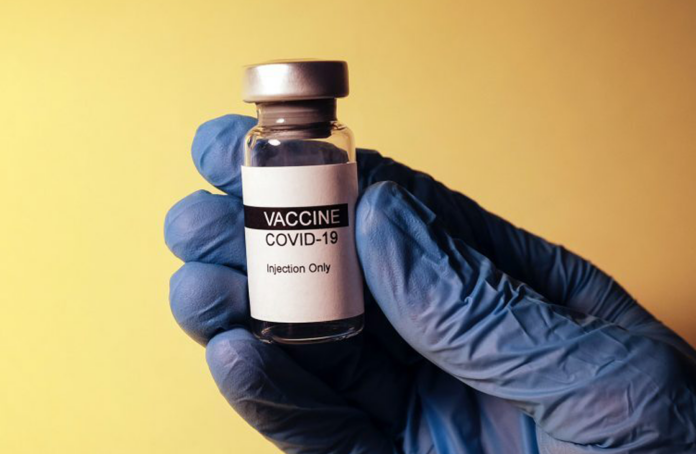(RNS) — Could a much-delayed COVID-19 shot finally win over religious vaccine skeptics?
That’s the question swirling around a vaccine made by Novavax, a Maryland biotech firm that submitted its request to the U.S. Food and Drug Administration last month for emergency use authorization of its COVID-19 shot, also known as NVX-CoV2373.
Although more than a year behind competitors such as Moderna and Pfizer/BioNTech, which were both cleared for emergency use in late 2020, Novavax’s two-dose vaccine has already been approved for use in other countries such as the U.K., and the company hopes to aid global inoculation efforts.
But Novavax may have another unusual selling point: the potential to woo vaccine skeptics who reject other widely available vaccines because of distant links to abortion they say violate their morals and their faith.
“No human fetal-derived cell lines or tissue, including HEK293 cells, are used in the development, manufacture or production of the Novavax COVID-19 vaccine candidate, NVX-CoV2373,” a Novavax spokesperson told Religion News Service via email.
About 64% of the U.S. population has been fully vaccinated against COVID-19 as of Feb. 18, with 28% having received an additional booster shot, according to The New York Times.
Public health experts say the unvaccinated population is harboring vaccine hesitancy or outright anti-vaccine sentiment, some of it driven by faith. According to a December 2021 survey by Public Religion Research Institute and the Interfaith Youth Core, 10% of Americans say they believe getting a COVID-19 vaccine conflicts with their religious beliefs.
Among their objections is that in developing or testing their vaccines, Moderna, Pfizer-BioNTech and Johnson & Johnson all used cell lines in various ways that trace their origins to aborted fetuses from the 1970s and 1980s. The most commonly used in medical laboratories are known as HEK293 and PER.C6.
Bishop Joseph Strickland of the Diocese of Tyler, Texas, has defied Catholic Church hierarchy by taking a hardline stance against COVID-19 vaccines because of the controversial cell lines.
“I WILL NOT take an abortion tainted vaccine, I wish other bishops had joined me months ago,” Strickland tweeted in April 2021. But he linked from the tweet to an article from the website Catholic Culture, which promoted the Novavax’s shot in a separate December 2020 post as “apparently developed and produced without any involvement of fetal tissues.”
Novavax CEO Stanley Erck has expressed hope his vaccine could win over vaccine skeptics in general. “In the U.S., the primary market I think in 2022 is going to be to supply a vaccine, our normal two-dose regimen, to a lot of people who have been hesitant to get other vaccines,” Erck told CNN in November.
Some prominent anti-vaccine activists, such as Robert F. Kennedy Jr., have been cautious but notably less hostile toward Novavax because it uses protein-based technology, a more traditional approach than the mRNA-based vaccines created by Moderna and Pfizer. The animal cells employed in its development, Novavax notes, come from moths.
The company claims the shot was up to 90% effective in preventing the original strain of COVID-19 and announced in December that it also generates an immune response against the omicron variant.
Abby Johnson, a prominent anti-abortion activist who has repeatedly condemned many COVID-19 vaccines because of their connection to fetal cell lines, celebrated Novavax’s approach.
“It is my understanding that (Novavax) has been used successfully in several countries with a high efficacy rate,” she told RNS in a statement. “It is also my understanding that there are not any ethical concerns regarding Novavax, which is hopeful for pro-lifers who have avoided the vaccine due to those objections.”

